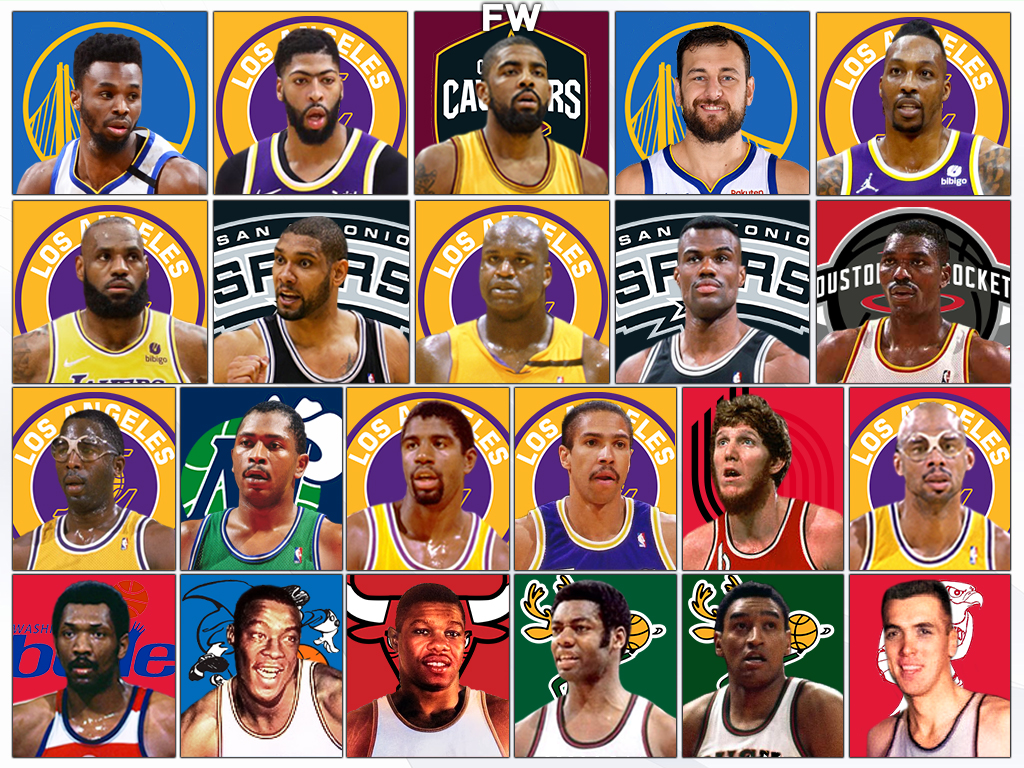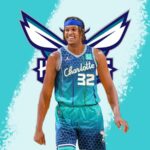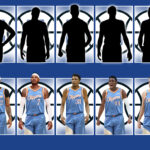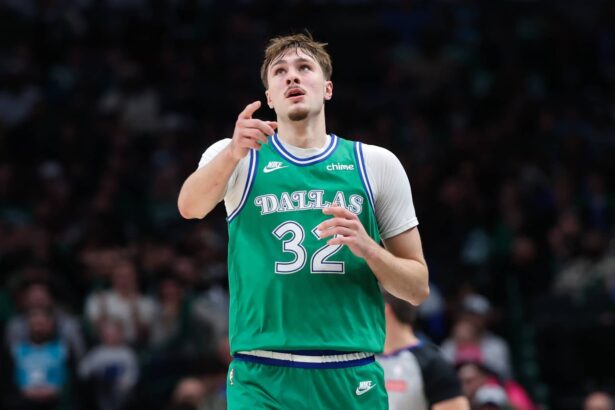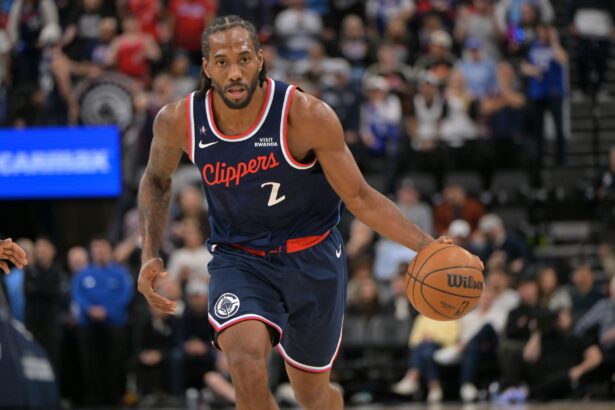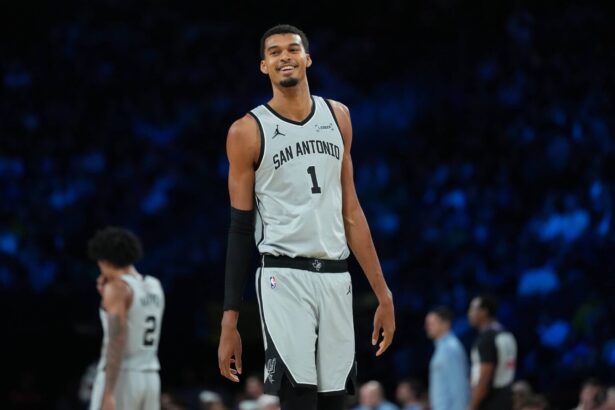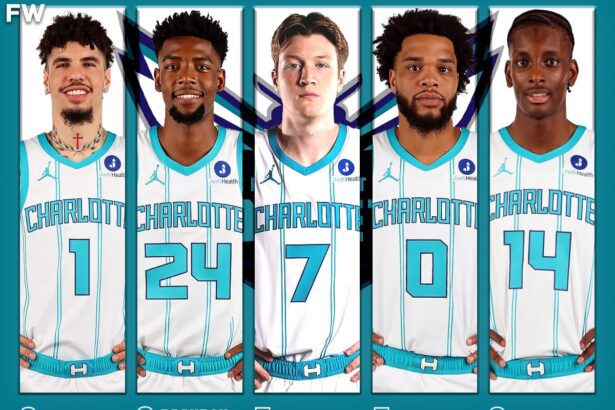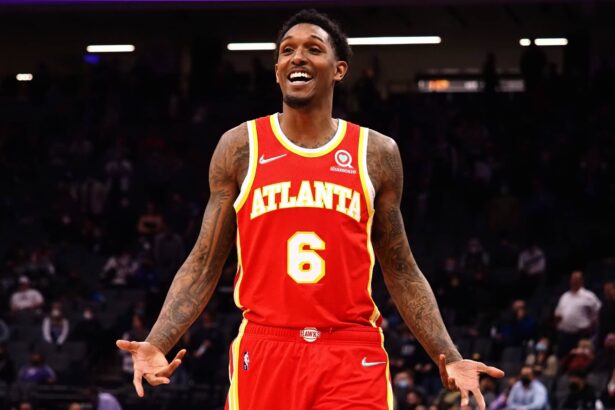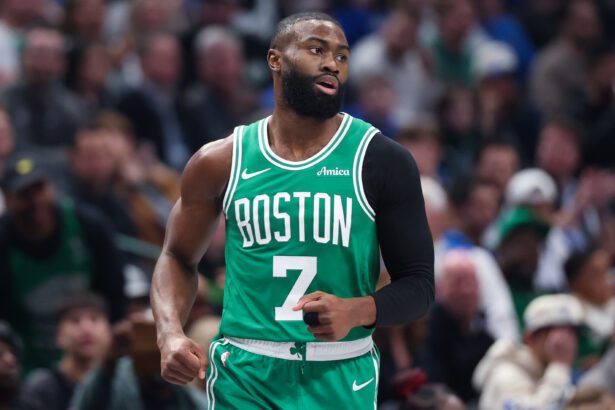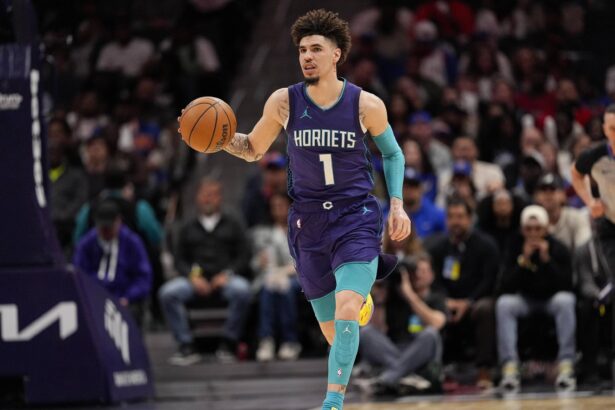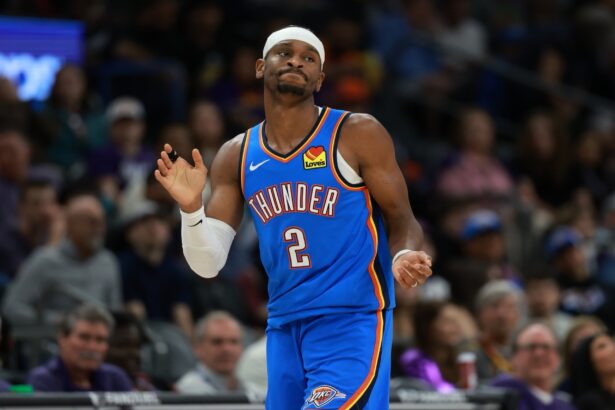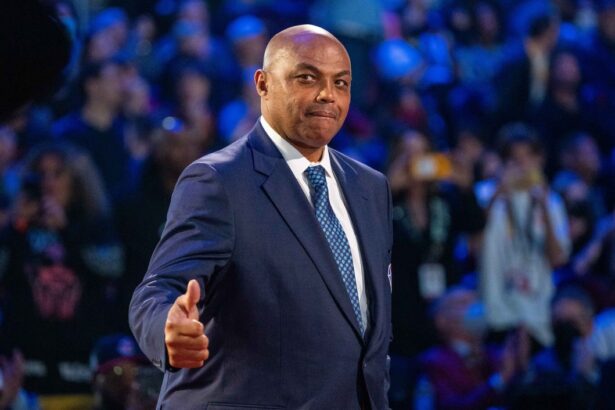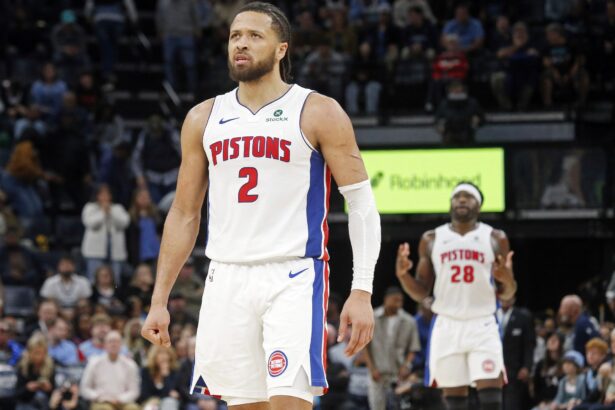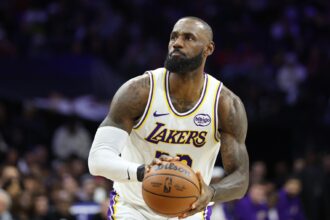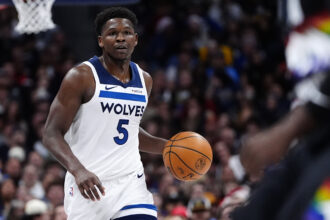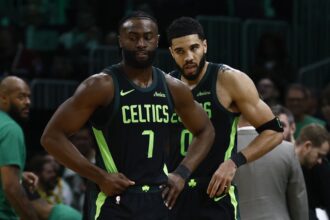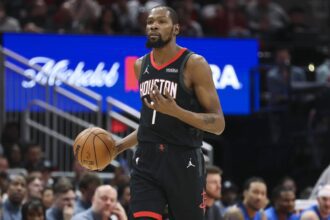When a team is “lucky” enough to get the No. 1 overall pick, it means one of two things. That team was one of the worst teams the season prior, or the team conducted a trade to land the top pick in the draft. When a team uses that pick, they are hopeful they drafted a player that can change the course of the franchise’s future.
While the No. 1 pick always sounds great on draft night, it doesn’t guarantee anything. We have seen players end up as major busts, which has prohibited the franchise from growing even further. We’ve also seen players get selected later in the draft who turned out to be great that won championships. In the last 30 years, only seven of the No. 1 overall picks have won a championship.
With Andrew Wiggins winning a championship, there are now eight players in Karl-Anthony Towns, Ben Simmons, Markelle Fultz, Deandre Ayton, Zion Williamson, Anthony Edwards, Cade Cunningham, and the upcoming 2022 No. 1 overall pick that will be without titles. It’s not that surprising to have a major gap in history between these picks. That is because it doesn’t happen very often.
These are the No. 1 picks that have won an NBA championship.
1950 No. 1 Overall Pick – Chuck Share
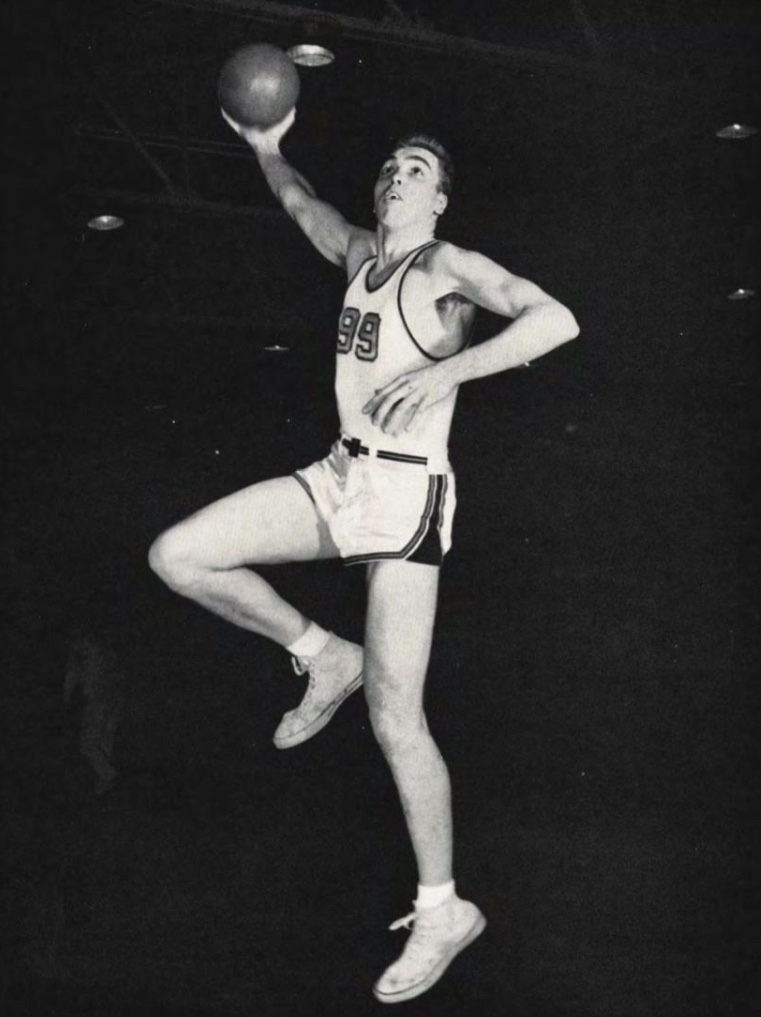
Championships: 1958
Share was selected by the Boston Celtics but did not sign with the team. He signed with the Waterloo Hawks of the National Professional basketball League. Then, he was traded to the Fort Wayne Pistons for Bill Sharman. Two years later, he was traded to the Milwaukee Hawks, who eventually became the St. Louis Hawks.
He was a strong rebounding force that also set screens and played strong defense. He helped Bob Pettit’s Hawks make three straight trips to the NBA Finals. In 1958, Share was a team captain. He averaged 6.2 points and 6.0 rebounds in six games as a key reserve for the team.
1959 No. 1 Overall Pick – Bob Boozer
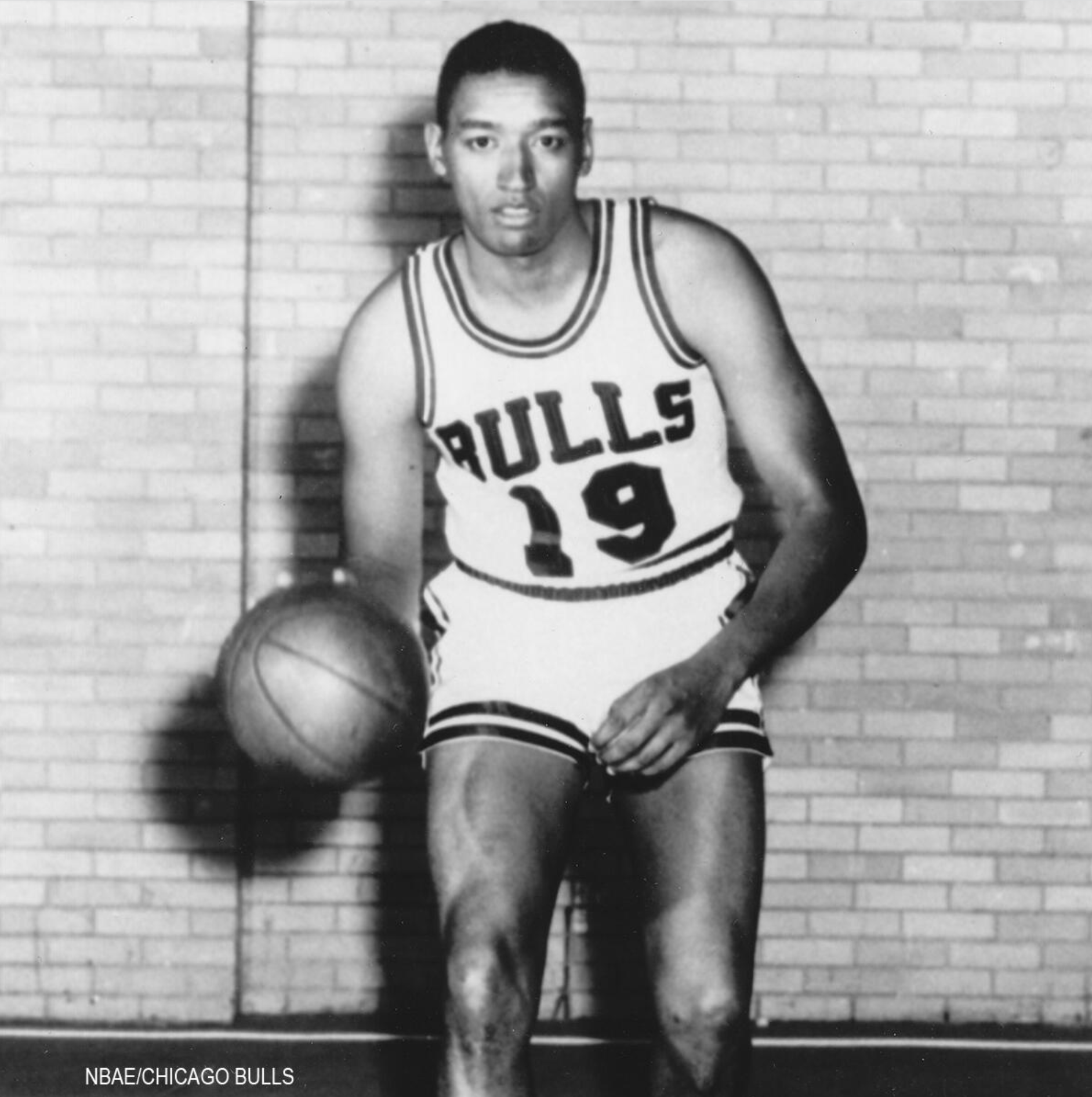
Championships: 1971
Boozer was a productive player during his time in the league, winning a gold medal in 1960, and was a key part of the 1971 Milwaukee Bucks. Boozer didn’t join the Cincinnati Royals until the fall of 1960, where he eventually joined a future Hall of Famer in Oscar Robertson. Boozer would eventually be pushed out by Jerry Lucas and he would bounce around with the Knicks, Lakers, Bulls, and SuperSonics.
It was not until his final year in the league that he would win a title. Boozer would play in 80 games in the regular season and averaged 9.1 points and 5.4 rebounds. In the playoffs, he was a key reserve, averaging 20.2 minutes, 7.4 points, and 5.3 rebounds. He is one of three No. 1 picks that were a part of that championship team.
1960 No. 1 Overall Pick – Oscar Robertson
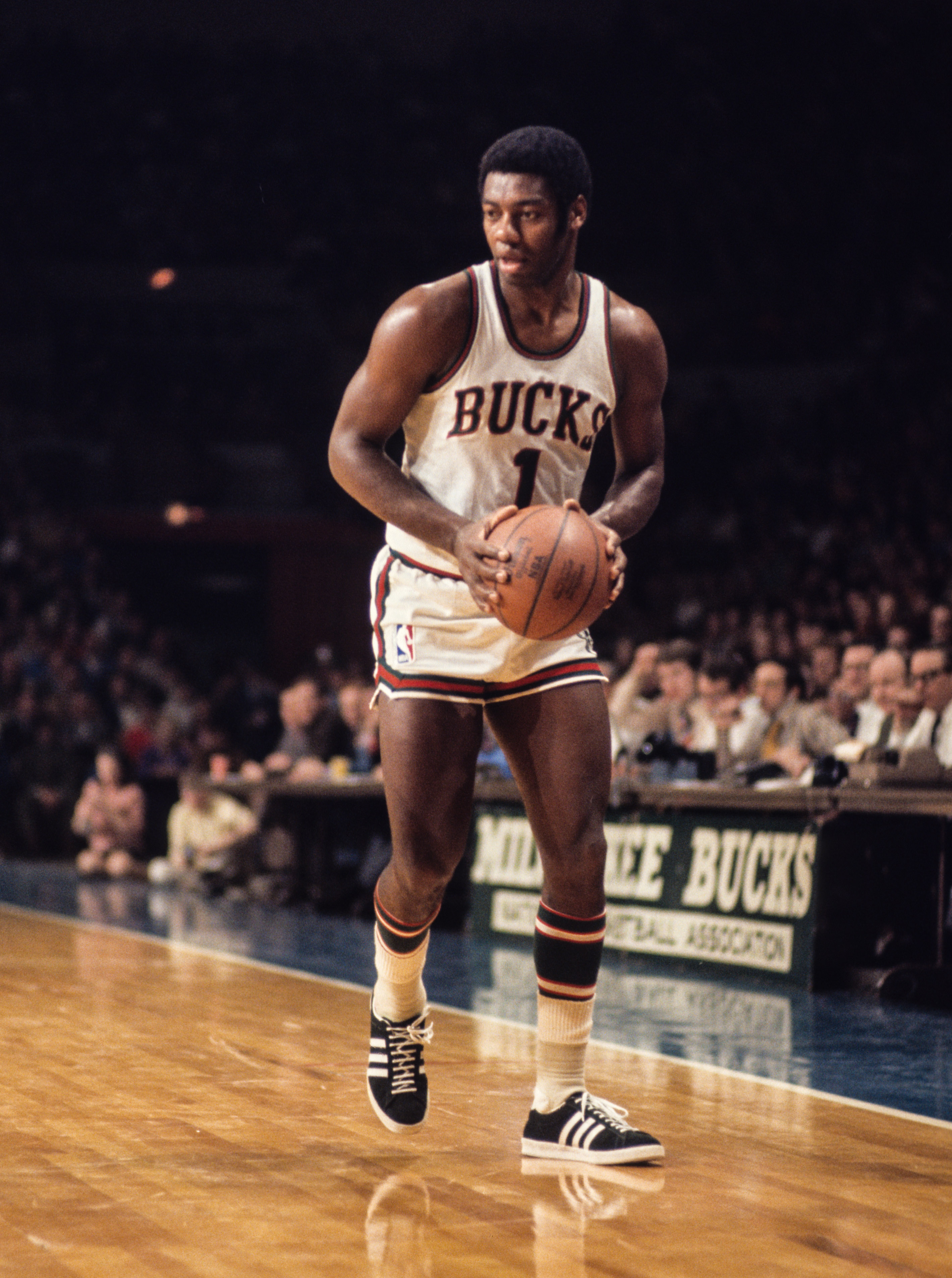
Championships: 1971
Robertson owns a decorated resume after he was drafted by the Cincinnati Royals. From averaging a triple-double in a season to making 12 All-Star teams, Robertson deserved every Hall of Fame vote. Without Robertson, the history of the Sacramento Kings would be a little different.
Robertson did not win a championship until he joined the Milwaukee Bucks in the offseason of 1970. The Bucks charged to 66 wins in the regular season, which included a 20-game winning streak. Then, the team dominated the playoffs with a 12-2 record. The Bucks were crowned champions after sweeping the Baltimore Bullets. For the playoffs, Robertson averaged 18.3 points, 5.0 rebounds, and 8.9 assists.
1964 No. 1 Overall Pick – Jim Barnes
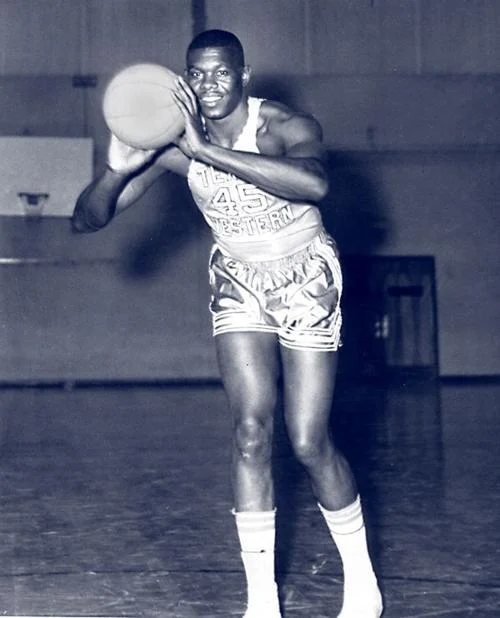
Championships: 1969
Jim “Bad News” Barnes was a former Gold medalist that was drafted by the Knicks. Before winning his first championship, he played for the Knicks, Bullets, Lakers, and Bulls before he joined the Celtics. By the time he joined the Celtics, his playing time was reduced due to injuries, which led him to be an effective reserve.
In 1969, Barnes was the backup to Bill Russell, but he was hampered by an injury. He did not make one appearance in the playoffs. In the end, his career was cut to just seven years in the league and he left basketball in 1971.
1966 No. 1 Overall Pick – Cazzie Russell
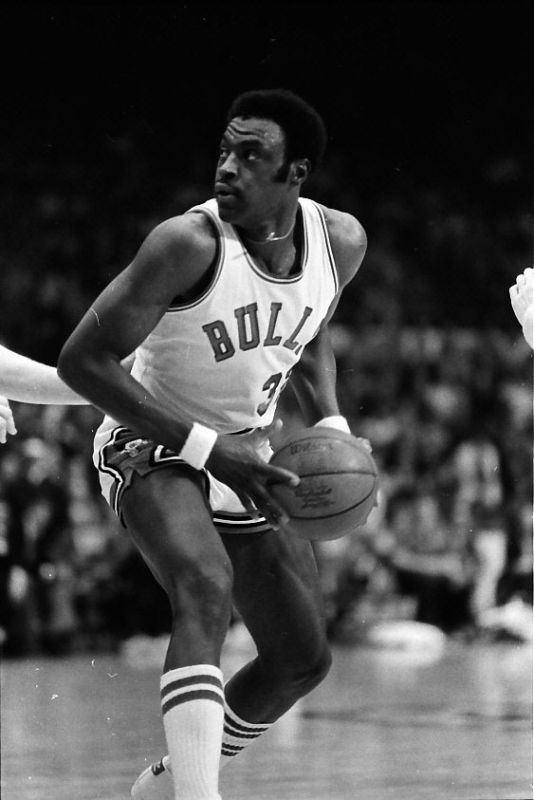
Championships: 1970
Russell was the 1966 National College Player of the Year at Michigan. He was later drafted by the Knicks with the No. 1 overall pick and played for five years up to 1971. While playing for the Knicks, he made the All-Rookie Team and helped the team win the championship in 1970.
During that season, Russell played in 78 games, averaged 20.0 minutes per game, and shot his career-high 49.8% from the field. He averaged 11.5 points, 3.0 rebounds, and 1.7 assists. In the playoffs, he played in 19 games as a receiver. He shot 48.5% from the field and averaged 9.4 points and 2.5 rebounds per game.
1968 No. 1 Overall Pick – Elvin Hayes
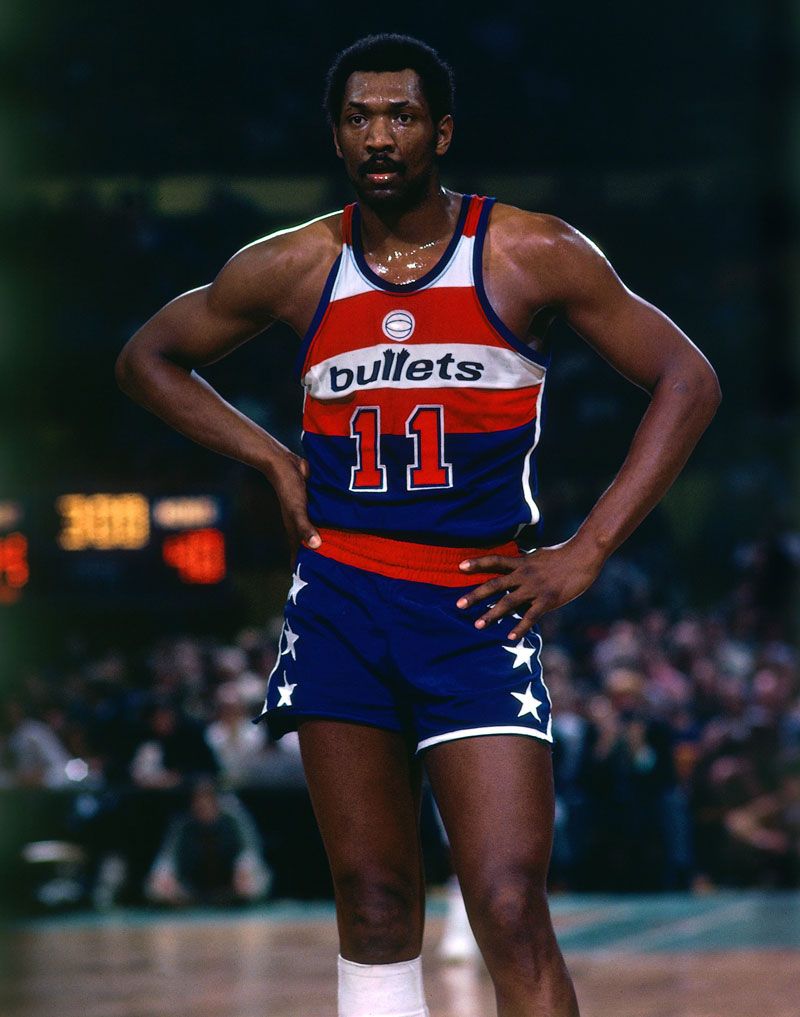
Championships: 1978
Hayes remains well regarded as one of the best power forwards in league history. His longevity in the league was one of his greatest strengths, missing just nine games in his 16-year career. Hayes became a superstar with the Washington Bullets. Paired with Wes Unseld, he helped Washington become a championship contender. The 1978 championship remains the last time Washington won a title.
The Bullets made the NBA Finals in 1975, 1978, and 1979. In the 1978 playoffs, Hayes had an abundance of accomplishments. That included 22 points, 27 rebounds, and 11 blocks in a win over the Pistons. In the Finals, he set a record for most offensive rebounds in a game with 11. For the playoffs, he averaged 21.8 points and 12.1 rebounds.
1969 No. 1 Overall Pick – Kareem Abdul-Jabbar
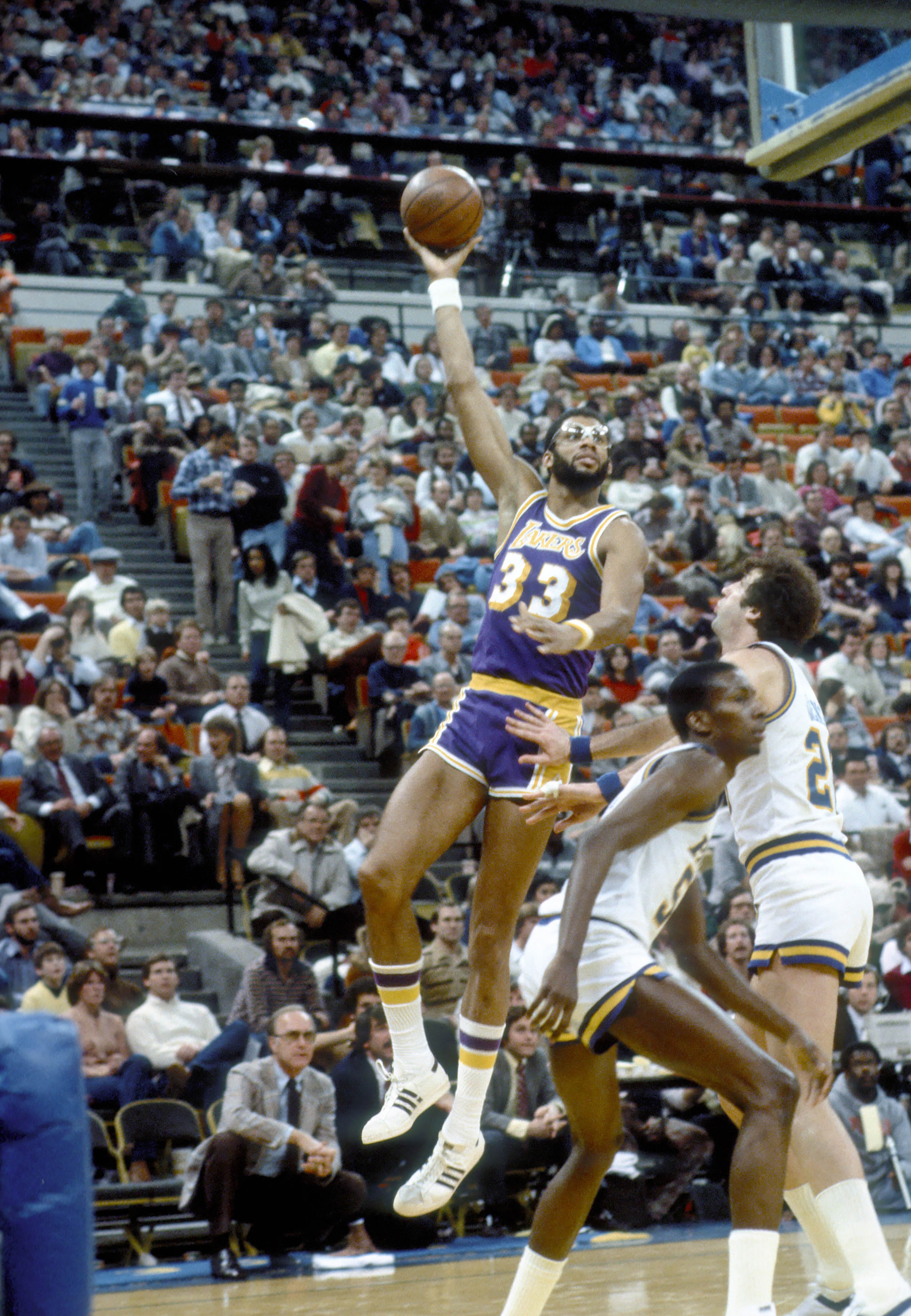
Championships: 1971, 1980, 1982, 1985, 1987, 1988
For now, Abdul-Jabbar remains the all-time leading scorer in the NBA. That could change one day, but what doesn’t change is his legacy in the NBA as a top-5 player of all time. It all started when he was drafted by the Milwaukee Bucks and led the team to their first championships in franchise history in an MVP season.
Then, he joined the Los Angeles Lakers, where he would be paired with another No. 1 overall pick 10 years later. That duo would lead the Lakers to the NBA Finals in all but two seasons during the 1980s. Among his five titles, Abdul-Jabbar was named Finals MVP two times in 1971 and 1985.
1974 No. 1 Overall Pick – Bill Walton
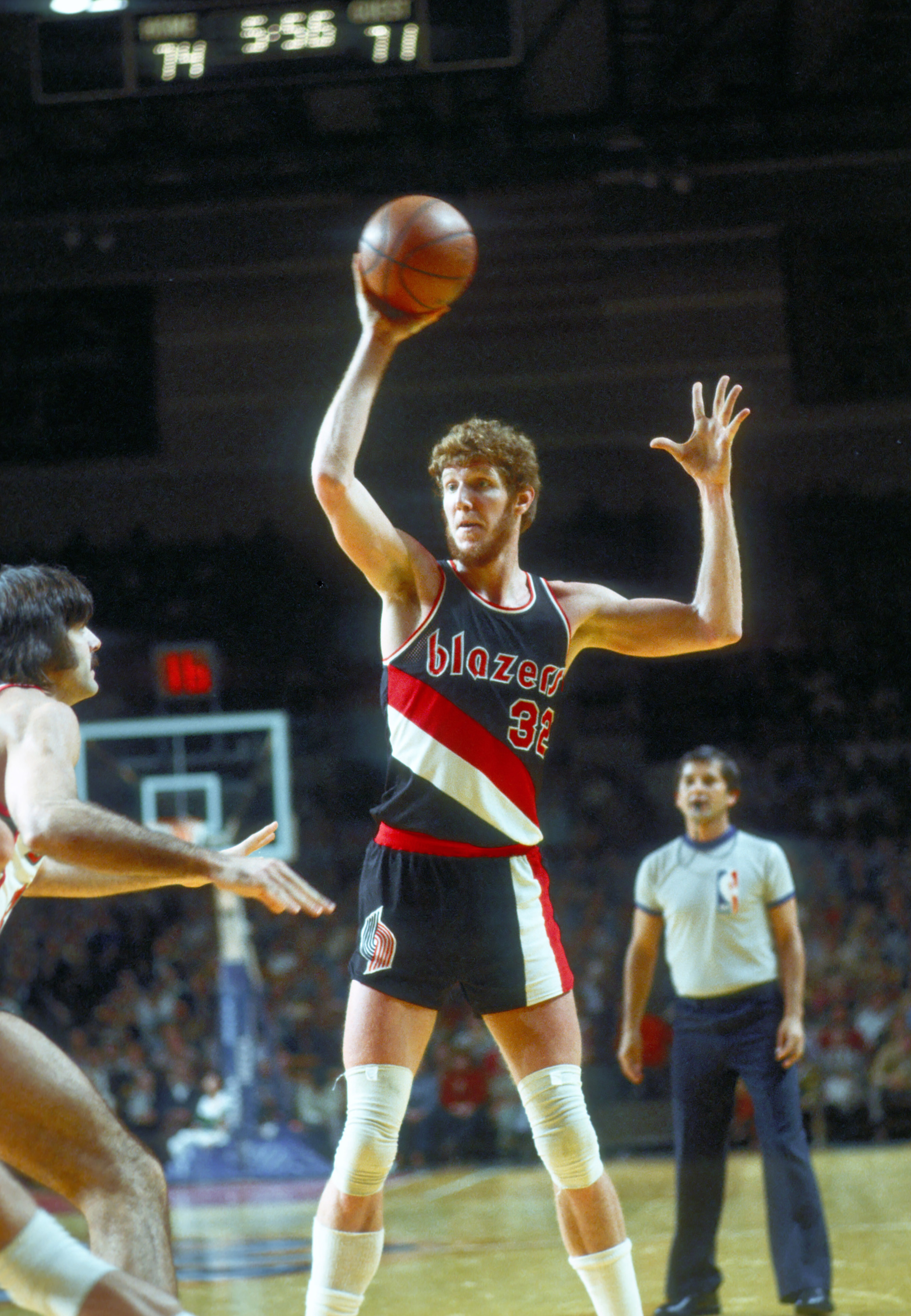
Championships: 1977, 1986
During the late 70s, Walton was one of the best overall players in the pros. In 1977, he led the league in rebounds and blocks to make All-Defensive First Team. The Trail Blazers were a Cinderella story in the playoffs after the No. 3 seeded team made their run to the Finals. In the Finals, the Trail Blazers lost the first two games to the favored 76ers but rallied to win four in a row. Walton was named Finals MVP after averaging 18.5 points, 19.0 rebounds, 5.2 assists, 1.0 steals, and 3.7 blocks.
In 1978, Walton was the league MVP, but the team didn’t replicate their championship success. Walton would get a second taste of winning a title when he joined the Celtics. Walton backed up Kevin McHale and Robert Parish, where he averaged fewer numbers than during his time in Portland. With that said, Walton was a key reserve in the Finals, averaging 8.0 points, 6.7 rebounds, and 2.2 blocks in 19 minutes per game against the Rockets.
1978 No. 1 Overall pick – Mychal Thompson
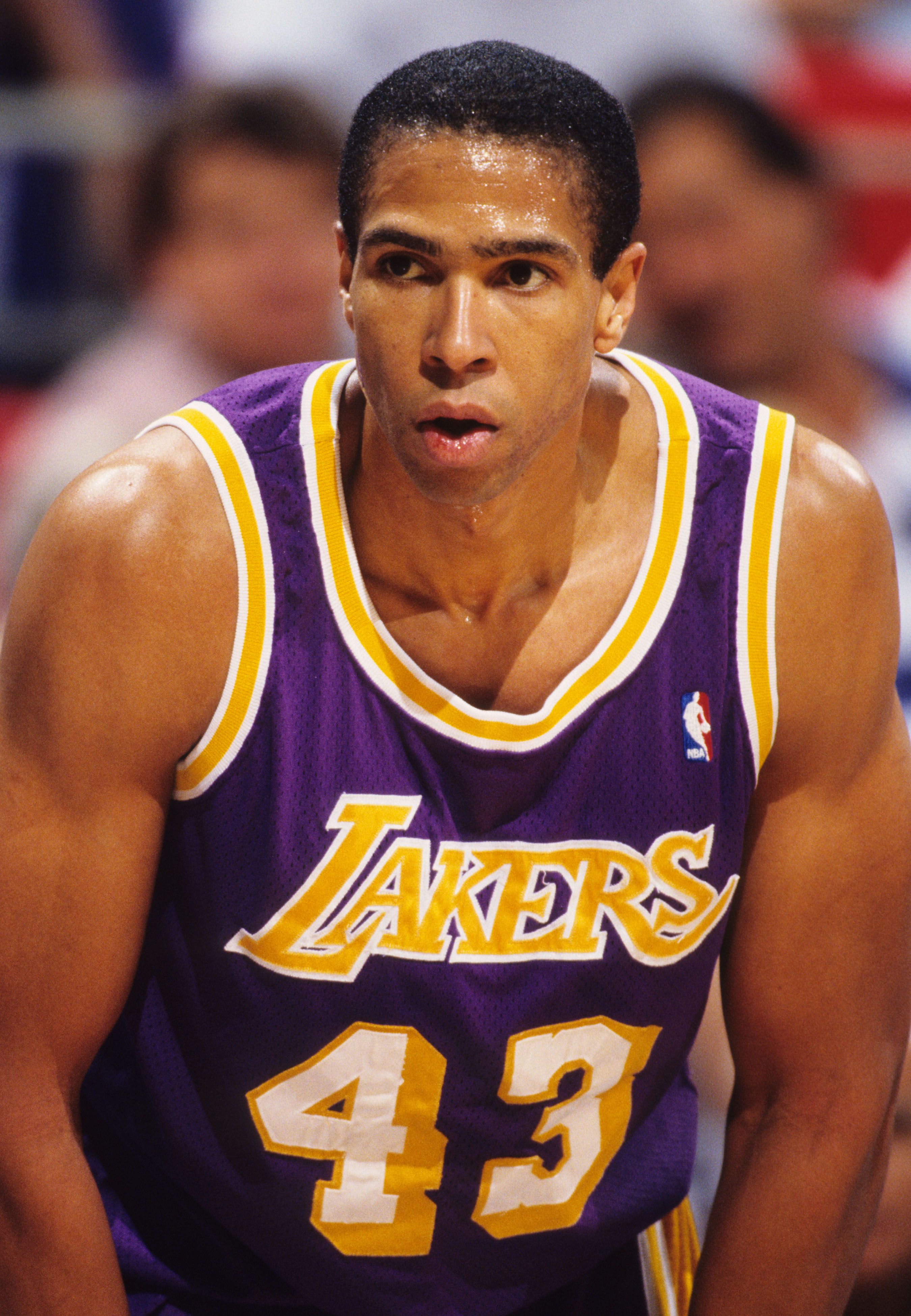
Championships: 1987, 1988
Like father, like son, the championship experience didn’t go far. Four-time champion Klay Thompson got some solid genes as his father was the 1978 No. 1 overall pick. Thompson won back-to-back championships and was part of a nucleus that featured four No. 1 picks on the roster in Abdul-Jabbar, Thompson, Magic Johnson, and James Worthy.
In 1987, the Lakers defeated the Celtics, where Thompson was a key part of the win. He backed up Abdul-Jabbar and had his best game in Game 6, when he scored 15 points and nine rebounds in 37 minutes. The following year, the Lakers defeated the Pistons in the Finals. In 24 playoff games, Thompson averaged 25.6 minutes, 9.7 points, and 7.1 rebounds.
1979 No. 1 Overall Pick – Magic Johnson
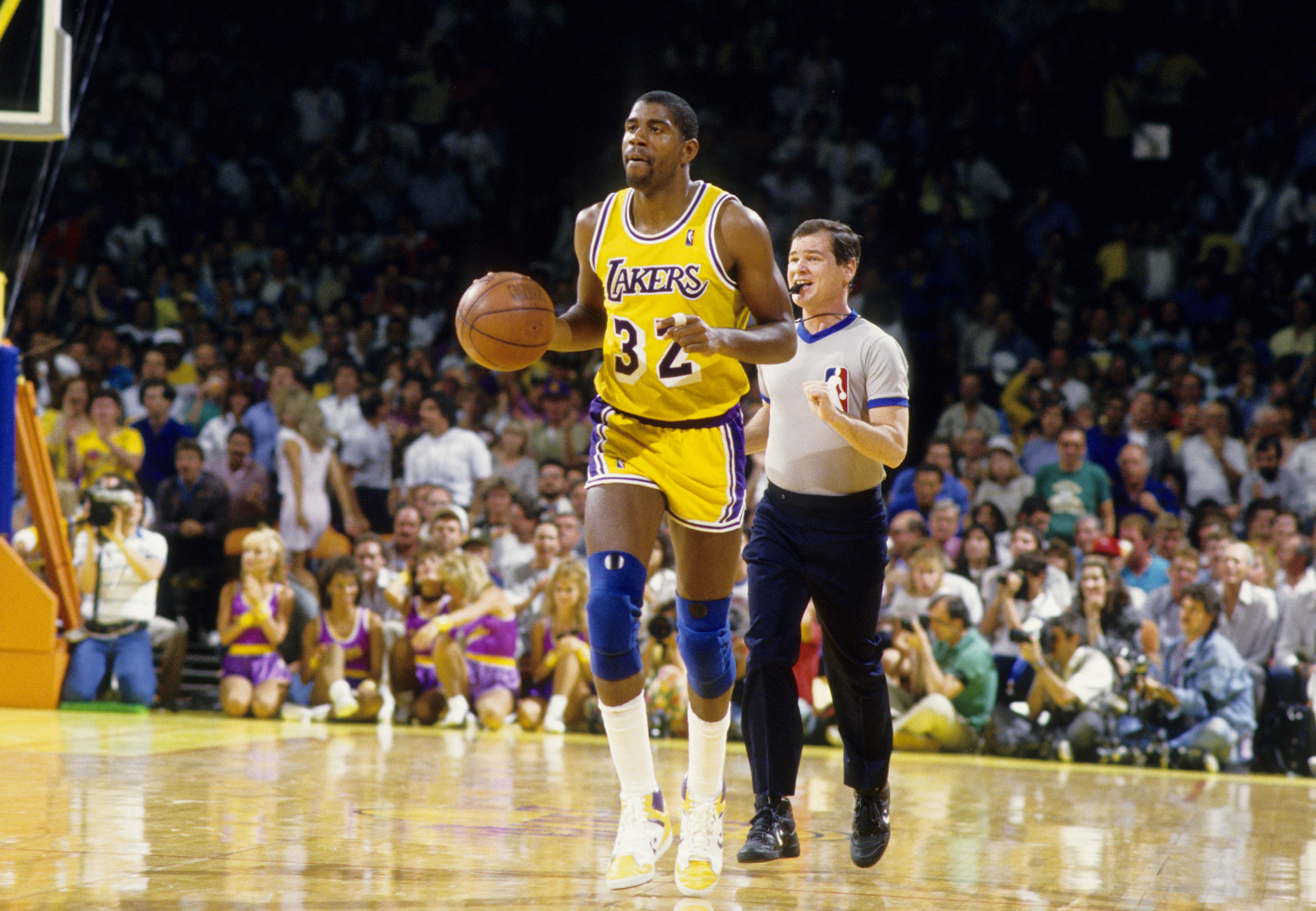
Championships: 1980, 1982, 1985, 1987, 1988
Along with Abdul-Jabbar, Johnson remains a top-5 player in NBA history. When Johnson came into the league, he was immediately a superstar, which led to him winning a championship in his rookie season. That was the same year that the rookie won Finals MVP as well. Johnson would go on to win five titles in the 80s while playing in eight Finals appearances. Altogether, he made one more trip to the Finals in 1991 before he had to retire early.
Johnson was the leader of the “Showtime Lakers.” With Johnson’s flashy style, the Lakers were a juggernaut during this era. Out of all the No. 1 picks on this list, he is one of the best, but he had a great supporting cast too.
1981 No. 1 Overall Pick – Mark Aguirre
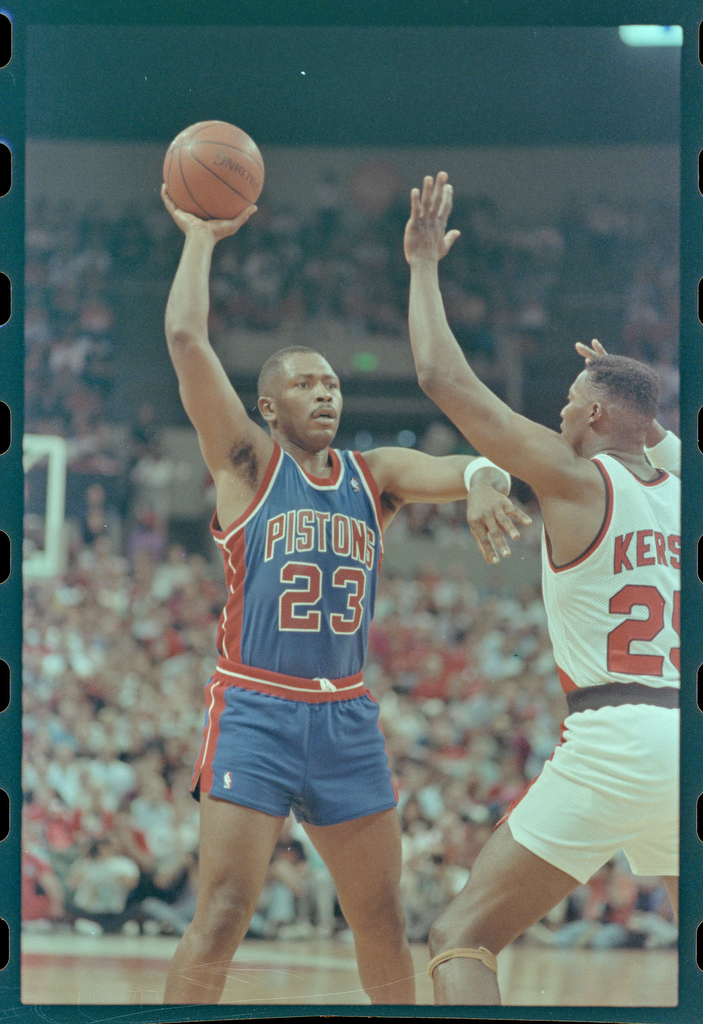
Championships: 1989, 1990
When Aguirre played for the Mavericks in the 80s, he was a three-time All-Star. However, he was unable to lead the Mavericks to a championship because he had the Lakers in his way. In 1989, he was acquired by the Pistons midway through the year, and Aguire would be a helpful piece in finally dethroning the Lakers.
The Pistons defeated the Lakers in the Finals in 1989, where Aguire played reserve minutes when the team upped the playing time for Dennis Rodman. The following year, he averaged 11.0 points per game in the Finals against the Trail Blazers. During both championship runs, Aguire contributed close to 12 points per game and shot about 47% from the field.
1982 No. 1 Overall Pick – James Worthy

Championships: 1985, 1987, 1988
Abdul-Jabbar, Johnson, Thompson, and James Worthy together made the Lakers special during the latter part of the 80s. Even when the Lakers had three No. 1 picks, the team was still a championship contender each season. Worthy played his entire career with the Lakers and was a prime reason the team won the Finals in 1988 when he was named Finals MVP.
Worthy had some great showings during those championship runs. In 1985, he shot 62.2% from the field, which included 50.0% from the three-point range in 32.9 minutes of action. In 1987, Worthy averaged 23.5 points per game to go with 1.6 steals and 1.2 blocks. The year he won Finals MVP, he was consistent throughout the playoffs, averaging 21.1 points, 5.8 rebounds, 4.4 assists, 1.4 steals, and 0.8 blocks.
1984 No. 1 Overall Pick – Hakeem Olajuwon
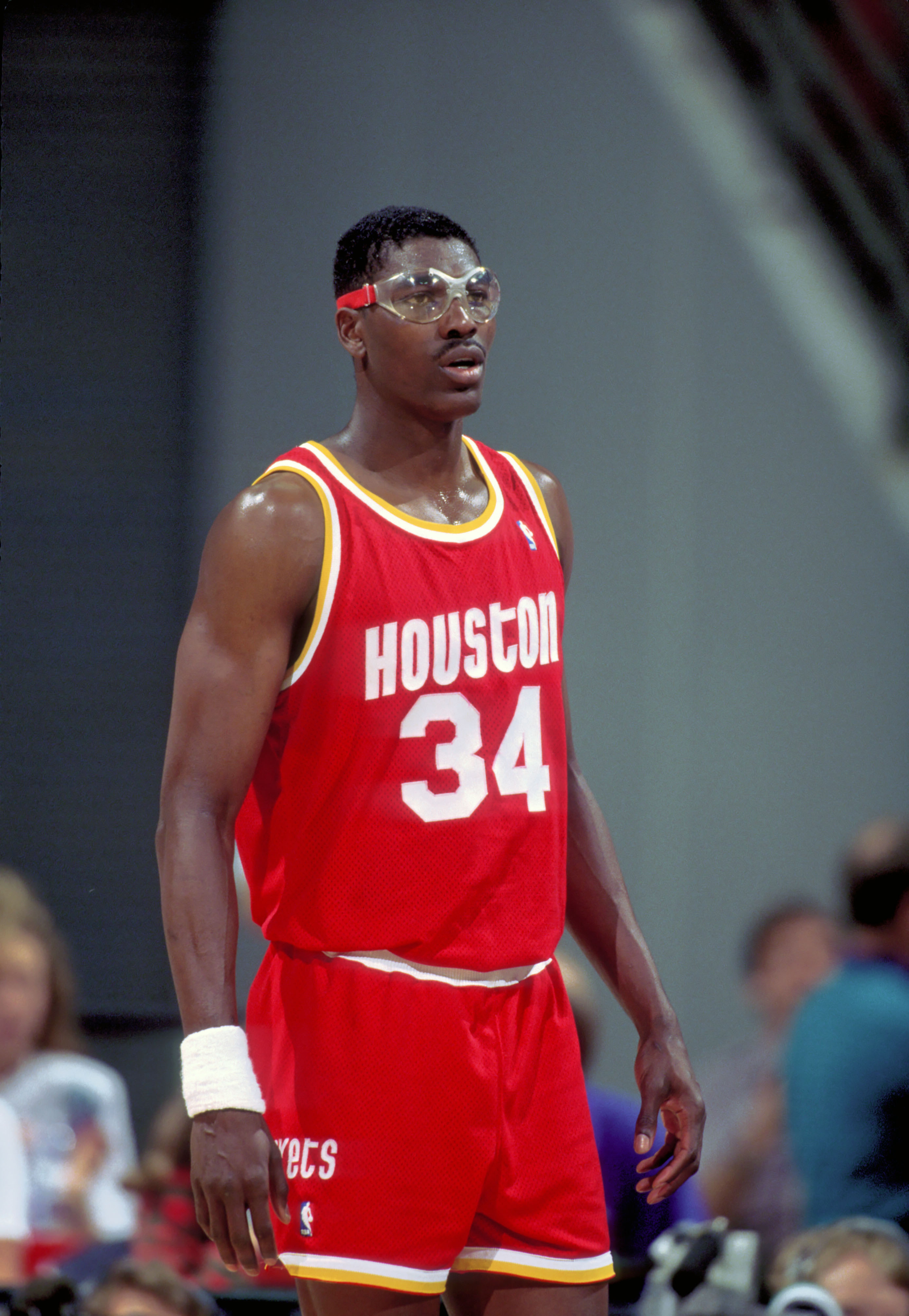
Championships: 1994, 1995
Olajuwon always had the pressure of being the No. 1 overall pick in 1984, which was the same year that Michael Jordan was drafted at No. 3 overall. Still, Olajuwon built himself to be one of the greatest players in league history. He helped the Rockets win back-to-back championships in the 90s.
The league features an abundance of talent at the center position with Patrick Ewing, David Robinson, Shaquille O’Neal, and Dikembe Mutombo, as well as other gifted players in Dennis Rodman and Karl Malone. Olajuwon was the back-to-back winner of the Finals MVP. During the 1994 playoffs, Olajuwon averaged 28.9 points, 11.0 rebounds, and 4.0 blocks. In 1995, he averaged 33.0 points, 10.3 rebounds, and 2.8 blocks for the playoffs.
1987 No. 1 Overall Pick – David Robinson
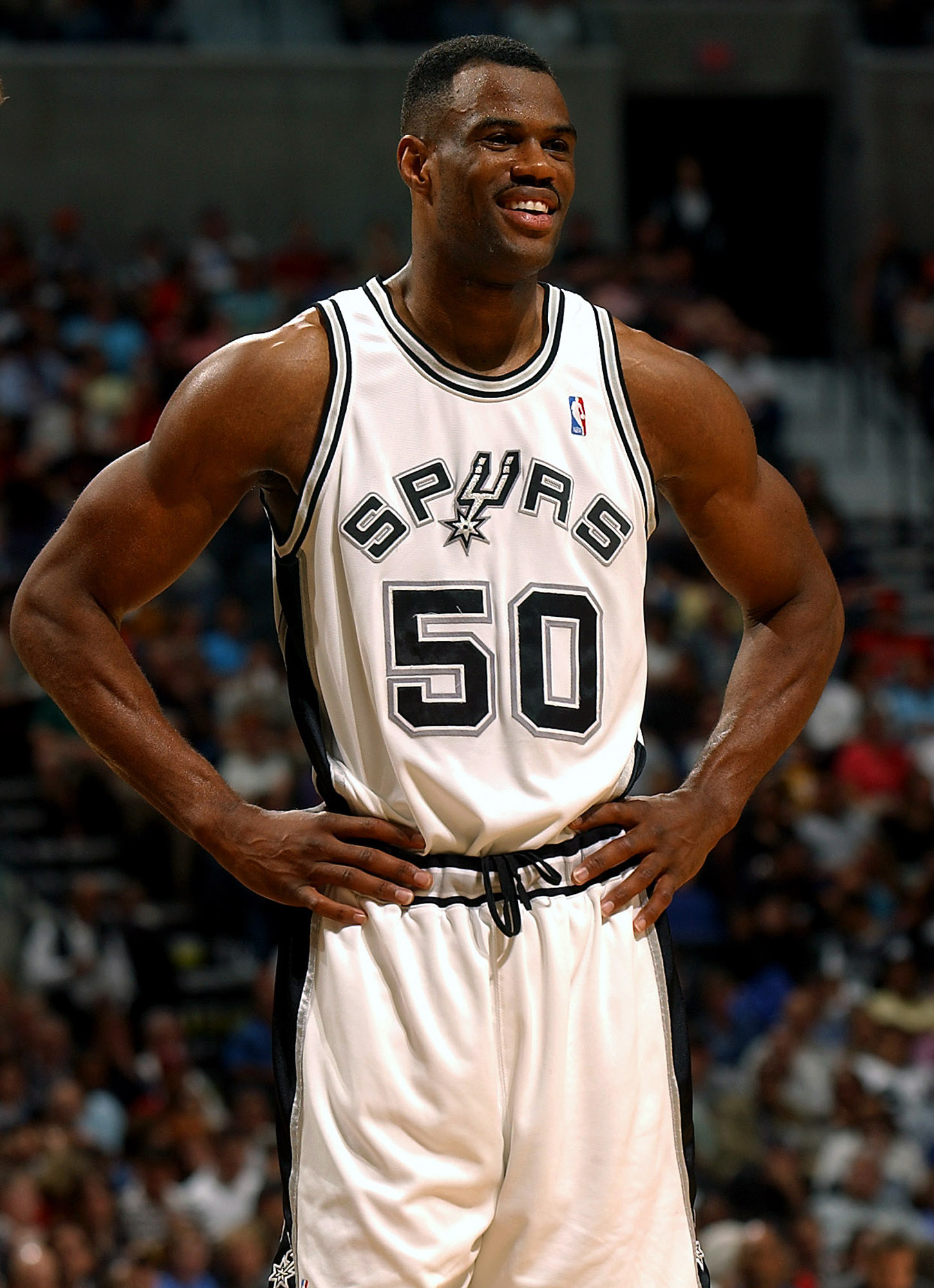
Championships: 1999, 2003
Predominantly from 1987 to 1998, Robinson was consistently one of the best players in the league. When the Spurs drafted Tim Duncan in 1997, the Twin Towers helped the San Antonio Spurs win their first title in team history with the team that drafted both of their players. In 1999, the Spurs powered their way through the playoffs by going 11-1 against the Timberwolves, Lakers, and Trail Blazers before defeating the Knicks in five games.
In 2003, Robinson was playing through his final season. The Spurs were a tough, defensive group that battled the Nets to six games in the Finals. In Game 6, he recorded 13 points and 17 rebounds in the final game of his career. When Robinson finished his career, he held many of the career records for the franchise.
1992 No. 1 Overall Pick – Shaquille O’Neal
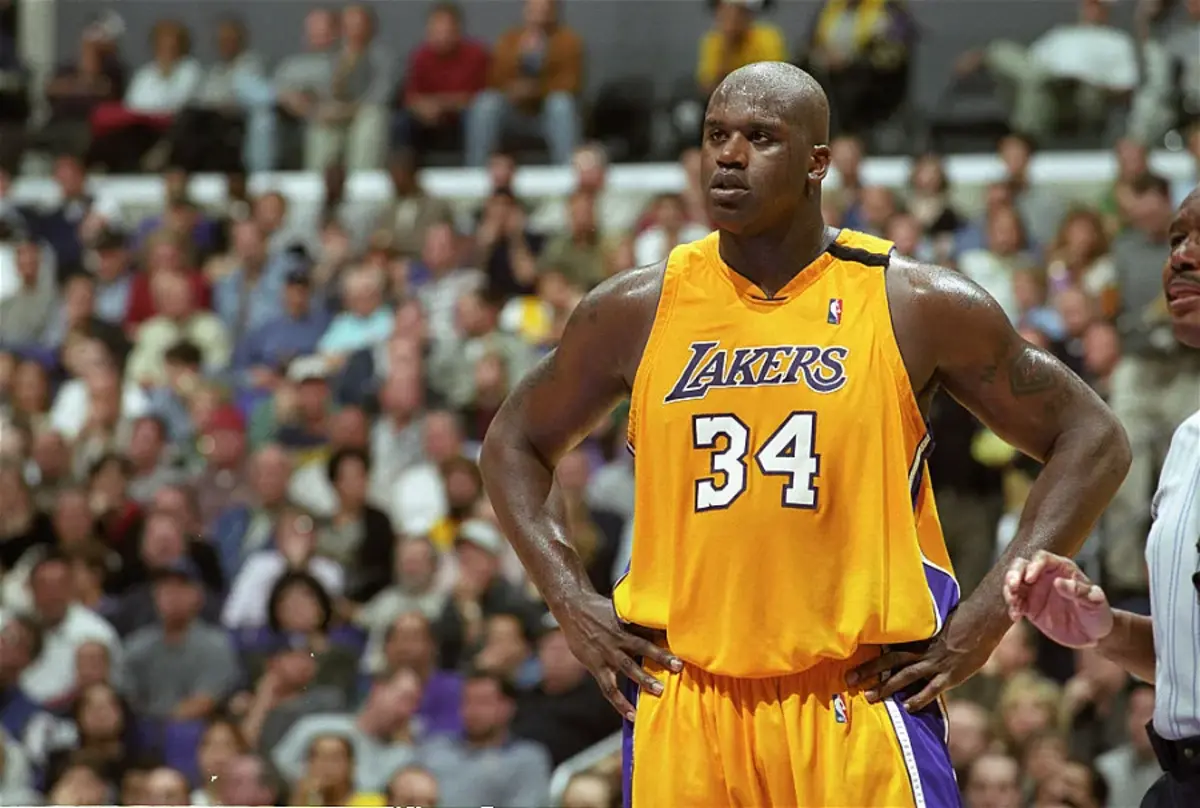
Championships, 2000, 2001, 2002, 2006
When O’Neal was drafted by the Orlando Magic, he helped the team quickly turn into a championship contender. With Penny Hardaway, Horace Grant, and Nick Anderson, O’Neal was the man in the middle that helped the Magic defeat the Chicago Bulls along their way to the 1995 NBA Finals. O’Neal never won a title with the Magic, which led to him joining the large market Los Angeles Lakers.
There, he won three straight titles and Finals MVP Awards from 2000 to 2002. When he left the Lakers for the Heat, he helped Dwyane Wade win the Heat’s first title in team history as the second-best player on that squad. O’Neal is regarded as a top-10 player in league history and potentially the best offensive center we have ever seen.
1997 No. 1 Overall Pick – Tim Duncan
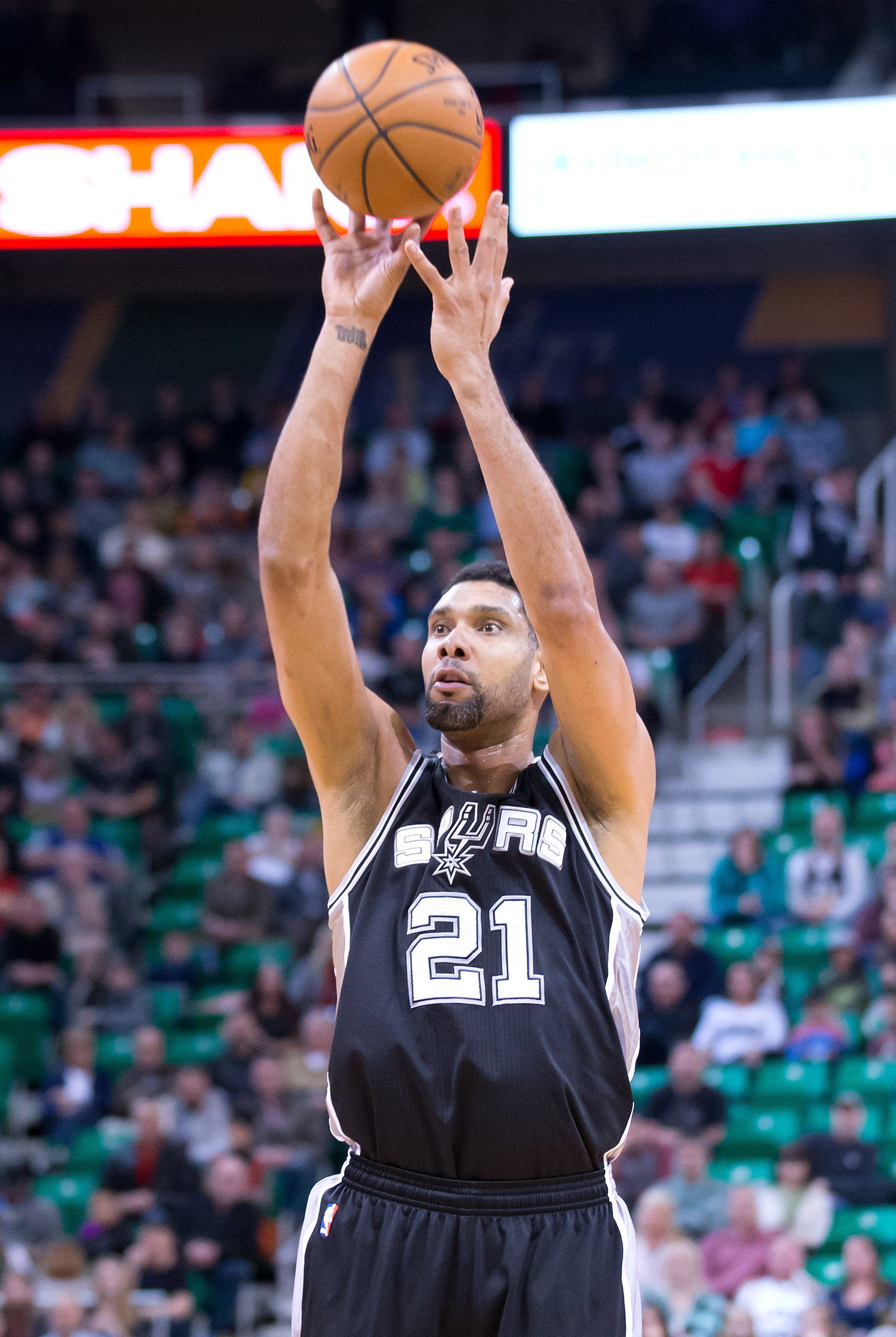
Championships: 1999, 2003, 2005, 2007, 2014
Duncan won two championships with his teammate, David Robinson. He also won Finals MVP during the 1999 and 2003 seasons, as well as during the 2005 Finals as well. In 2005, the Spurs played a defensive battle with the Pistons and were able to come out on top in seven games. With Tony Parker, Manu Ginobili, and Kawhi Leonard as a supporting cast, Duncan was able to add more hard work to his collection.
The Spurs nearly won a title in 2013 but came up just short in seven games to the Heat. The following year, Duncan had a resurgence in his career to help the Spurs win the Finals in five games. Altogether, Duncan is the greatest Spur, beating the likes of Robinson and George Gervin. He also is considered a top-10 player in league history.
2003 No. 1 Overall Pick – LeBron James
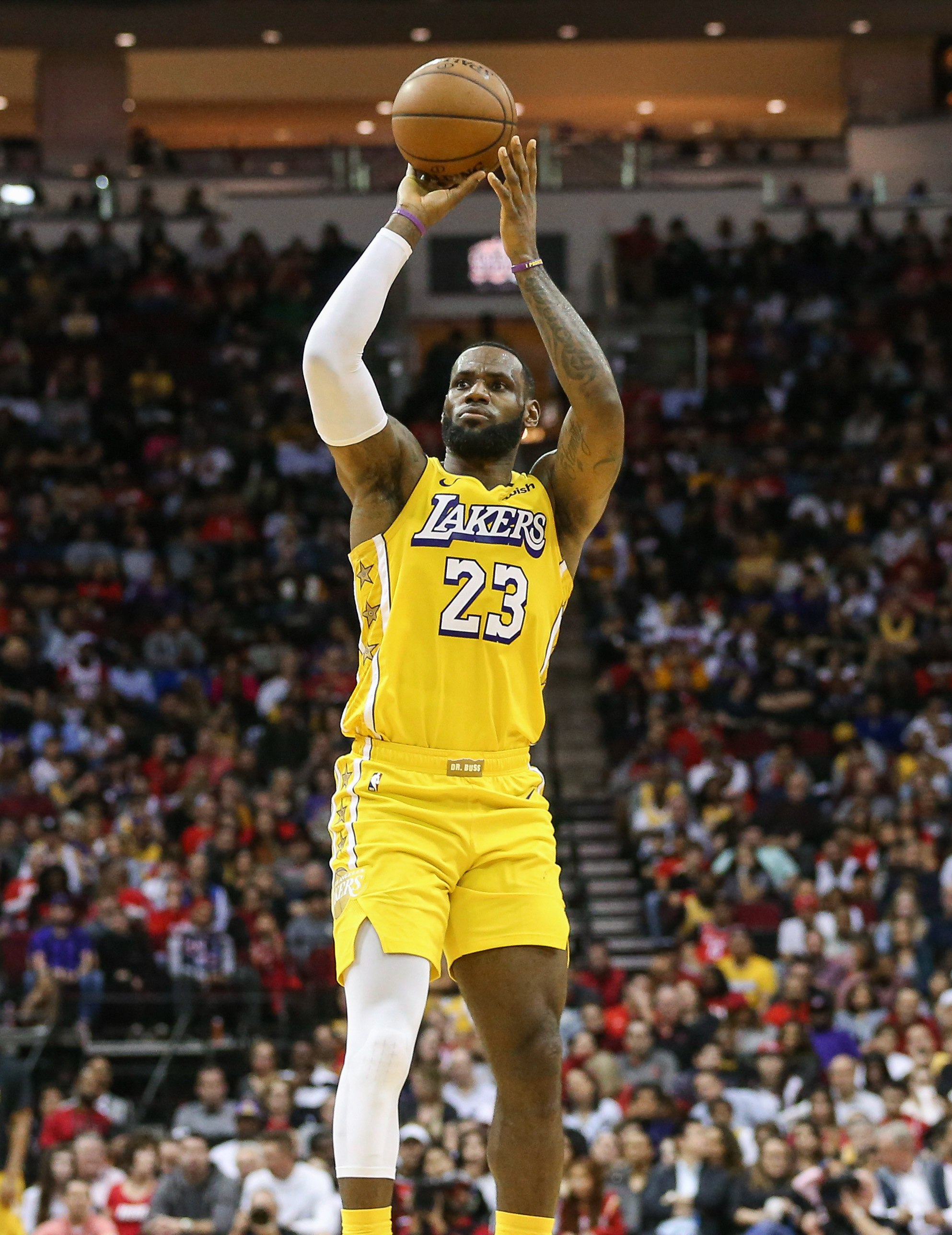
Championships: 2012, 2013, 2016, 2020
The second coming of Michael Jordan. That is what a lot of players thought of when LeBron James was drafted by the Cavaliers in 2003. By 2007, James led the Cavaliers to the NBA Finals, where he was defeated by Duncan’s Spurs and Finals MVP Tony Parker. Altogether, James has played in 10 NBA Finals, owning a 4-6 record, as well as an eight-year streak from 2011 to 2018.
James led the Heat to four straight appearances and championship hardware in 2012 and 2013. He was named Finals MVP in both of those years. He would lead the Cavaliers back to the Finals from 2015 to 2018. James averaged a triple-double in the Finals, becoming the first player ever to do so, in 2017 despite the Warriors winning the Finals. He would win the Finals with the Lakers in 2020 to become one of four players to ever win three titles with three different teams.
2004 No. 1 Overall Pick – Dwight Howard
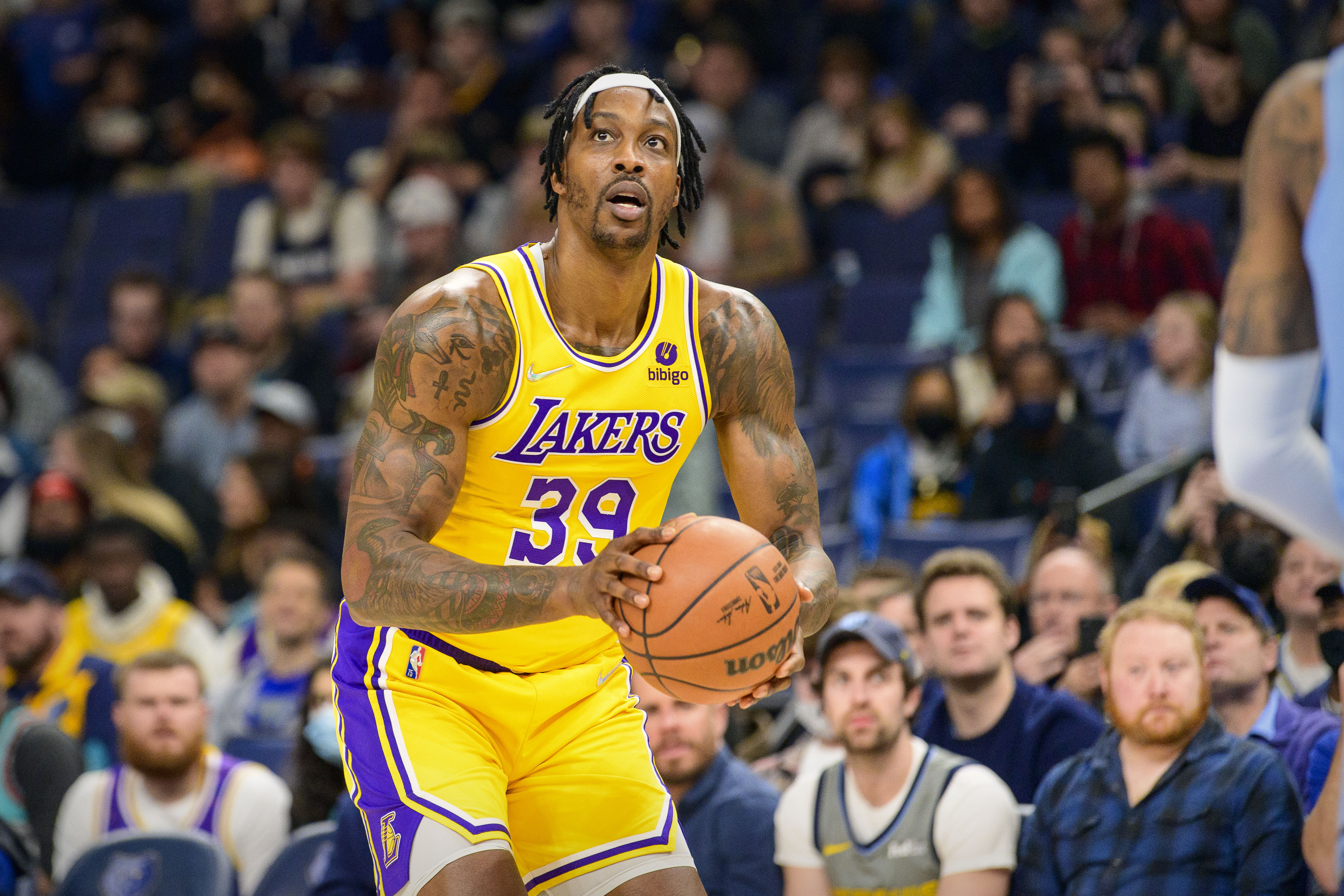
Championships: 2020
From 2004 to 2013, Howard was one of the most, if not the best, centers in the league. He was a Defensive Player of the Year candidate each season and led the league in rebounding five times and blocks twice. He led the Magic to the NBA Finals in 2009, only to be bested by Kobe Bryant and the Lakers.
It wouldn’t be until Howard was in the later stages of his career. Before the 2019-20 season, he signed a veteran’s minimum contract to join the Lakers. He had some special moments during the team’s playoff run, which included 12 points and 11 rebounds against the Nuggets in Game 4 of the Conference Finals. For the playoffs, Howard averaged 15.7 minutes of action and shot a career-high 68.4% from the field, averaging 5.8 points per game.
2005 No. 1 Overall Pick – Andrew Bogut
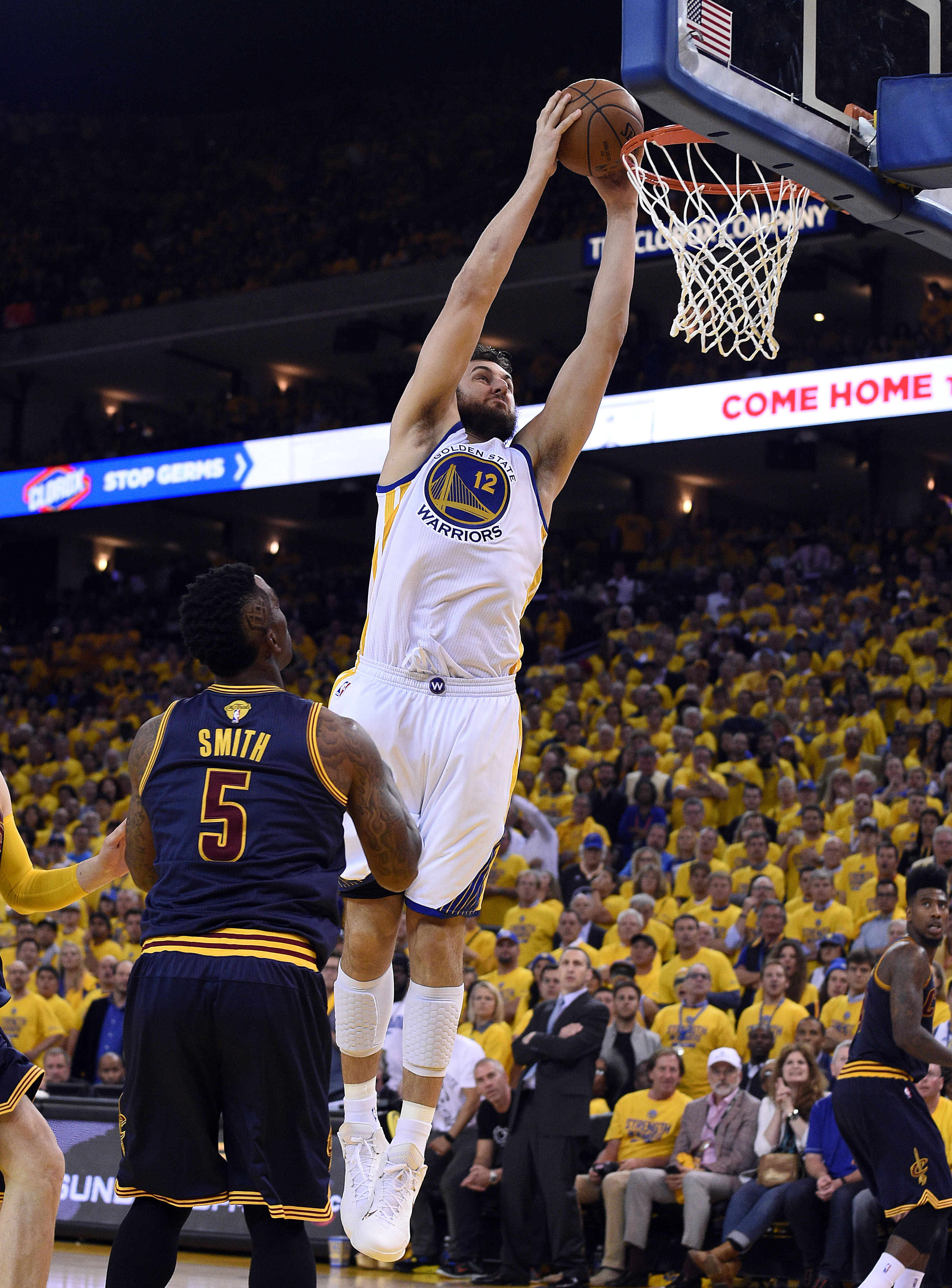
Championships: 2015
Bogut was selected as the No. 1 overall pick by the Milwaukee Bucks, where he enjoyed some success. He was a member of the All-Rookie First Team despite not winning Rookie of the Year. Bogut was an All-NBA Third Team selection in 2010, while he led the league in blocks the following season. He would play for the Bucks from 2005 to 2012 before being traded to the Warriors.
With the Warriors, he eventually set in nicely with the team’s defense. He made the All-Defensive Second Team. During the season, his best game came on April 7 against the Pelicans where he recorded a career-high nine blocks. Bogut was a starter for the team as the Warriors ultimately defeated the Cavaliers in six games in the Finals.
2011 No. 1 Overall Pick – Kyrie Irving
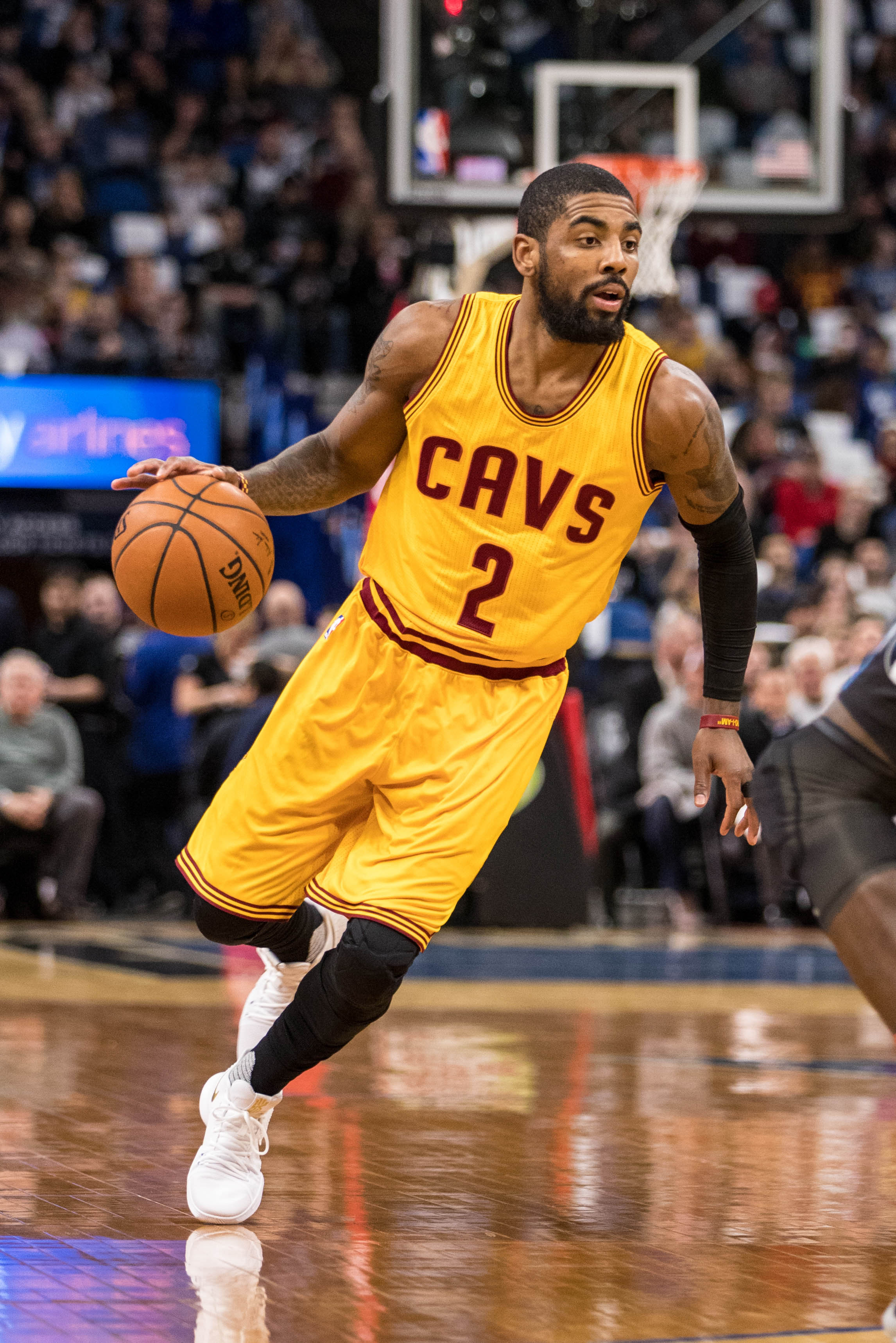
Championships: 2016
When LeBron James left the Cavaliers, the team struggled in that first season, which led to the team drafting Irving with the No. 1 overall pick. Irving grew into an All-Star in 2013 and 2014 before James returned to the team. With James, Irving, and Kevin Love, the Cavaliers made the NBA Finals each season from 2015 to 2017.
In 2015, the Cavaliers came up just short, but the following year, he helped create NBA history. The Cavaliers became the first team to rally from a 3-1 deficit to win the Finals. That included Irving scoring 41 points in Game 5. He also hit the go-ahead three-point shot in Game 7 with 53 seconds left. Irving played in the Finals in 2017 before leaving the Cavaliers after the season.
2012 No. 1 Overall Pick – Anthony Davis
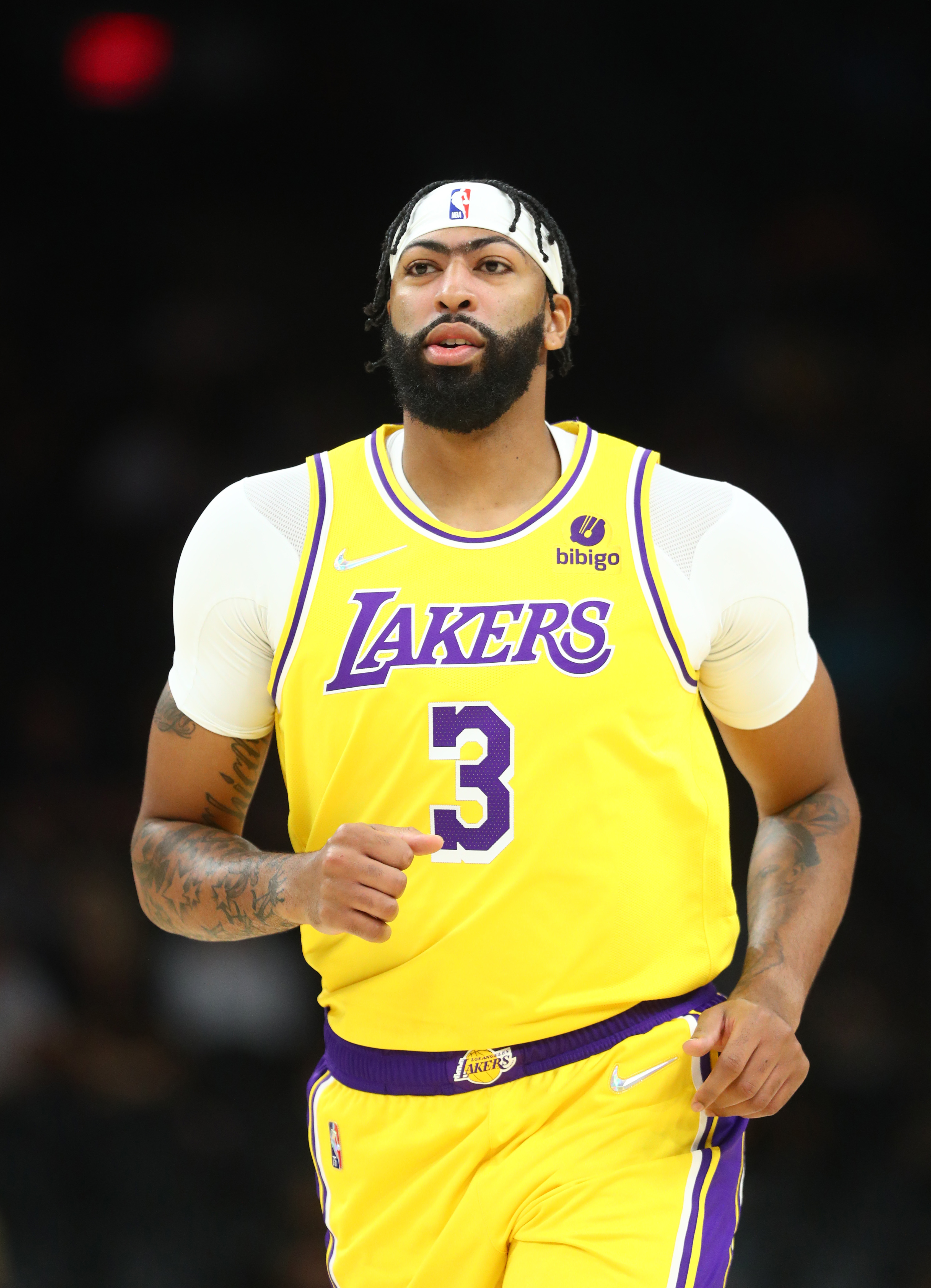
Championships: 2020
When Davis was drafted by the New Orleans Pelicans, he was considered the next savior of the team after Chris Paul had been traded to the Clippers. Davis could not get the Pelicans past the second round of the playoffs and would eventually ask for a trade. There, he would be sent to the Lakers for an abundance of players and draft picks. In his first season, he was the runner-up for Defensive Player of the Year Award, leading the Lakers to a top defense.
The combination of LeBron James and Davis was enough to lead the Lakers to the NBA Finals. That included a game-winning three-pointer by Davis against the Nuggets in the Conference Finals. After that, the team defeated the Heat in six games. He became the first player to win an NCAA title, Olympic gold medal, a FIBA World Cup gold medal, and an NBA championship.
2014 No. 1 Overall Pick – Andrew Wiggins
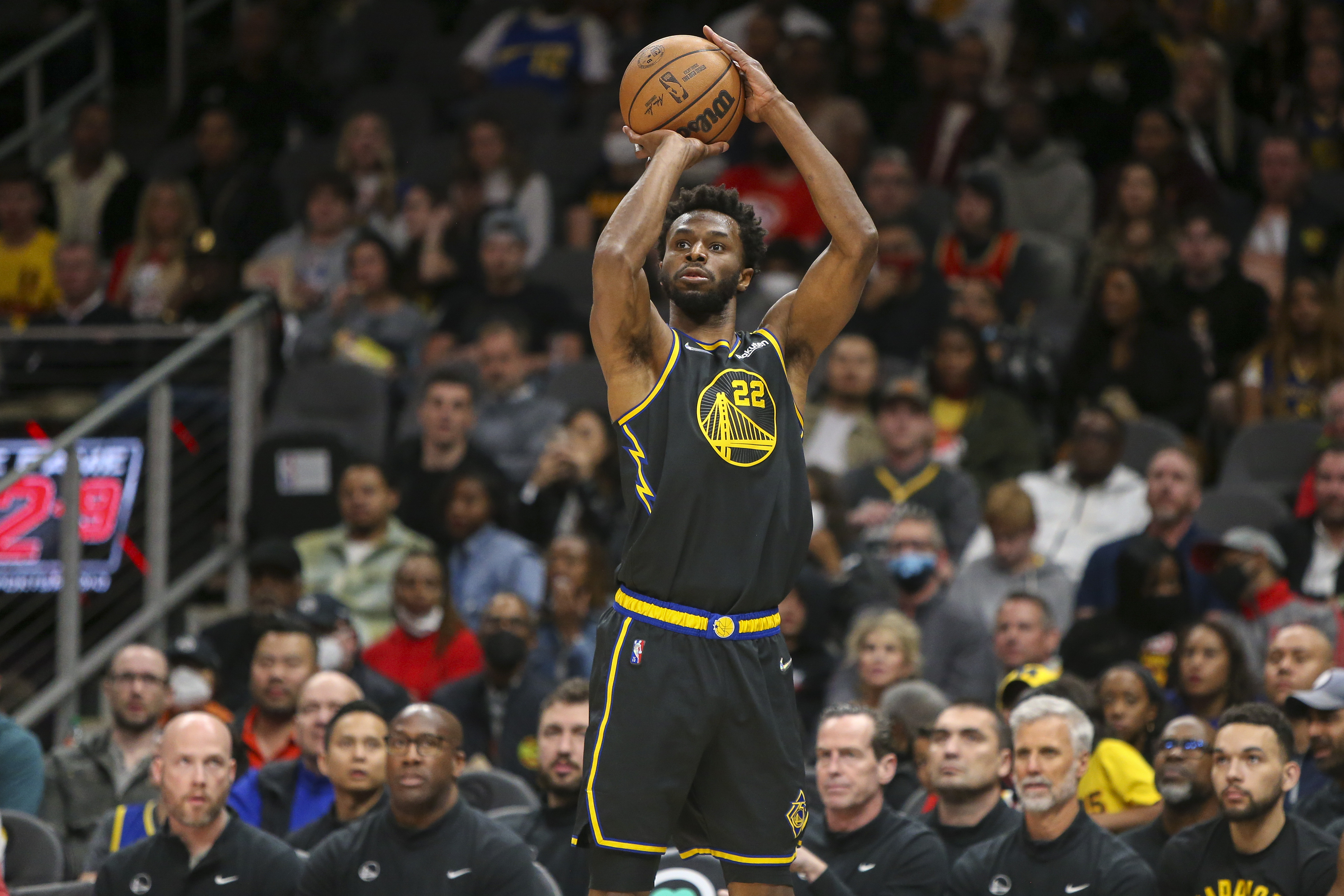
Championships: 2022
From 2014 to 2020, Andrew Wiggins carried the burden of being a No. 1 overall pick with just one playoff appearance with the Timberwolves. He was the 2015 Rookie of the Year, landed a max contract extension, but never made an All-Star appearance. In 2020, the Warriors traded D’Angelo Russell to the Timberwolves in exchange for Wiggins. Last year, Wiggins grew into the second-best offensive player next to Stephen Curry. With Klay Thompson back this year, the Warriors looked like their old dynasty with Wiggins taking the next step towards making the All-Star team for the first time in his career.
Wiggins shined in the playoffs by playing great defense, and at times, leading the team in rebounding. In the Conference Finals, Wiggins recorded 27 points and 11 rebounds to help the Warriors take a 3-0 lead. Another standout performance featured 17 points and 16 rebounds in a crucial Game 4. He followed that with 26 points and 13 rebounds in a Game 5 win and 18 points in 44 minutes of action in Game 6.

